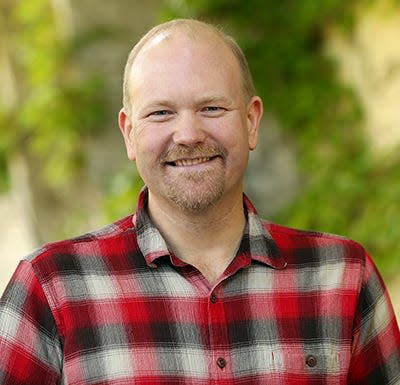Roe v. Wade opinion and other hot issues could exacerbate The Big Sort
Bill Bishop's 2008 book "The Big Sort: Why the Clustering of Like-Minded America is Tearing Us Apart" drew a great deal of attention to the idea that Americans were choosing to live in (or move to) places inhabited by people with similar political values. That process would, he warned, lead to a degree of self-segregation that would damage democracy by concentrating us into geographical and ideological bubbles.
The recent leak of a draft Supreme Court opinion overturning the landmark Roe v. Wade case has rekindled debates over the possibility that Americans will literally uproot themselves in response, further dividing the country into camps with completely incompatible views on controversial issues like access to abortion, the right to privacy, same-sex marriage, immigration, drug legalization and other hot-button topics.

While opinion polling shows large majorities of Americans are opposed to restricting existing rights, our broken political system — most perniciously the corrosive impacts of gerrymandering and the grossly disproportionate rural representation in the U.S. Senate — has brought us to an era where it is conceivable to see significant erosion of long-standing rights in many areas.
Conservative politicians at the state level are on record in many cases favoring restricting or eliminating existing rights currently protected at the federal level while also reducing government authority to regulate the environment, workplace safety and labor. This is seen as a strategy to attract votes and bring business to their states. As Republican Governors Association Deputy Communications Director Mike Demkiw told Forbes last year, "people are desperate to escape the heavy-handed, regulation-ridden big-government approach pushed by liberal governors."
But the opposite is also true. The recent move by Florida Republicans to strip the Walt Disney Co. of a special tax exemption granted in the 1960s — in retribution for the company's criticism of the so-called "Don't Say Gay" bill limiting what schools can teach about gender — certainly has some business owners considering where they will invest going forward. Any company seeking to employ a diverse, young, educated workforce will now have to consider the implications of basing operations in Florida or other states where legislators have targeted medical care for trans youth, gender education, teaching about racism or other issues favored by conservatives engaged in this new culture war.
The worst imaginable results of this process of self-sorting and all-out political warfare play out in Omar El Akkad's 2017 novel "American War," set in the years after the "second American Civil War," in this case triggered by conflict over climate change and environmental regulation, exacerbated by the meddling of an external power intent on dividing Americans in order to weaken their global influence. In it, three generations of a family experience the violence and pain of internecine conflict, one that started with political opposition and ended with millions dead and millions more fleeing across borders as refugees to reunite with those who shared their political values.
As we read news accounts of fed-up conservatives leaving blue cities for red hinterlands and fed-up liberals leaving red states for blue metropolitan strongholds, we should consider what factors may contribute to those decisions.
Economic upheaval in the wake of COVID has certainly impacted migration as some seek new employment and others find new freedom in remote work. The growing impacts of climate change — wildfires and hurricane intensity, for example — have played a role. But so have the results of state-level decisions to invest in education, job creation, the environment, affordable housing, medical care and social programs.
Should the Court ultimately issue an opinion overturning Roe and possibly other key decisions supporting civil rights at the federal level, the rhetoric surrounding the Big Sort is sure to grow more heated. Clearly, significant numbers of people will base relocation decisions on their feelings about divisive political and social issues.
Others, of course, will continue to move for the many reason that have always defined Americans as a nation of transients: economic opportunity, better schools, affordable housing, access to a cleaner environment, proximity to family and the like.
But as they do, we should all be conscious of the potentially pernicious effects of surrounding ourselves solely with kindred spirits — for any beliefs become weaker in the complete absence of challenge.
— This is the opinion of Times Writers Group member Derek Larson. He teaches history and environmental studies at The College of St. Benedict and St. John’s University. He welcomes your comments at twg@anderson-larson.net.
This article originally appeared on St. Cloud Times: Roe v. Wade opinion and other hot issues could exacerbate The Big Sort
